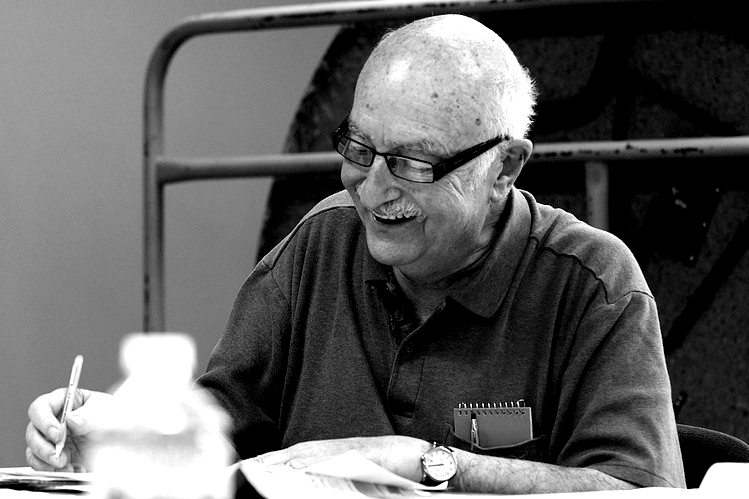
Tom Vartabedian was a longtime columnist of the Armenian Weekly, who, in many ways, embodied the spirit of this almost century-old newspaper. For 46 years, from 1970 up until the day he died in 2016, he authored a weekly column called “Poor Tom’s Almanac.” Many of our readers grew up reading his column.
“Poor Tom’s Almanac” started as an effort to “introduce some levity into the serious and often stoic world of journalism.” He was committed to the idea that real messages could reach readers without “all the doom and gloom” that too-often characterizes the modern news industry. Turns out he was right about the need for humor—his columns quickly became a staple of our readers’ weekly news diets.
Sometimes, like in “Thoughts to Ponder While Shaving,” they were rueful diatribes on rigged community raffles to TV commercials. Other weeks, they were philosophical ruminations on the virtues of deli food over posh fine dining. If our serving of weekly news were a meal, “Poor Tom’s Almanac” would be the crisp, savory appetizer: more nourishing than desert, less wholesome than the entrée, and always over too soon.
If you really love your work and your environment, why change? Working in the city where I have lived was a true complement. I was always there for my children and wife… There’s something to be said for proximity.”
Whether he was frequenting his local diner or teaching Armenian language classes at the local church, throughout his life, Tom held a deep reverence for his immediate surroundings—the people, places, and institutions that make up a community. And in journalism, he was no different. For nearly 50 years, he worked at the same regional newspaper, the Haverhill Gazette, in addition to writing weekly columns and acting as a New England correspondent for the Armenian Weekly.
In his final column, written on the eve of his death after a year-long battle with cancer, he wrote: “I have often been told by others that my career as a journalist and photographer became stagnated and stale… Why would anybody spend a half century with one job, one paper? My response to that comment would be, “Why not?” If you really love your work and your environment, why change? Working in the city where I have lived was a true complement. I was always there for my children and wife… There’s something to be said for proximity.”
But most importantly, Tom Vartabedian understood that to be Armenian was to be human. His articles often did not revolve around Armenian issues or interests, providing a refreshing break from the heavy topics that tend to befall our pages. His writings combine the deep sensitivity of a philosopher with the decisively sharp wit and finger-wagging sarcasm of a lifelong New Englander. His prose could be brutally honest and unapologetically direct. Nowhere was this more evident than when he began covering his illness in our pages shortly after he was diagnosed with liver cancer. But his “cup-half-full” approach to life was unwavering. He never left his readers on a “sour note.”
“If I can leave you with anything, please do not take our community for granted and get the most out of it. What you do for yourself invariably dies with you. What you do for others lives on and forms legacies.”
Much can be learned, about our paper, about journalism, and about life, by revisiting the plucky wisdom of “Poor Tom’s Almanac.” This is why the Armenian Weekly has recently partnered with the Armenian Youth Federation (AYF-YOARF) Eastern U.S. to launch an internship in his name, which we hope to populate with bright, young writers in the coming months. In a globalized world, in which both high quality local food and local news are becoming increasingly scarce, we hope to honor Tom’s commitment to proximity. We hope the Vartabedian internship will help preserve the humility, introspection, honesty, and dedication that Tom brought to the world and, in particular, to our community.
Tom himself said it best: “If I can leave you with anything, please do not take our community for granted and get the most out of it. What you do for yourself invariably dies with you. What you do for others lives on and forms legacies.”
Author information
The post Reconsidering Proximity appeared first on The Armenian Weekly.
Source: Armenian Weekly
Link: Reconsidering Proximity
